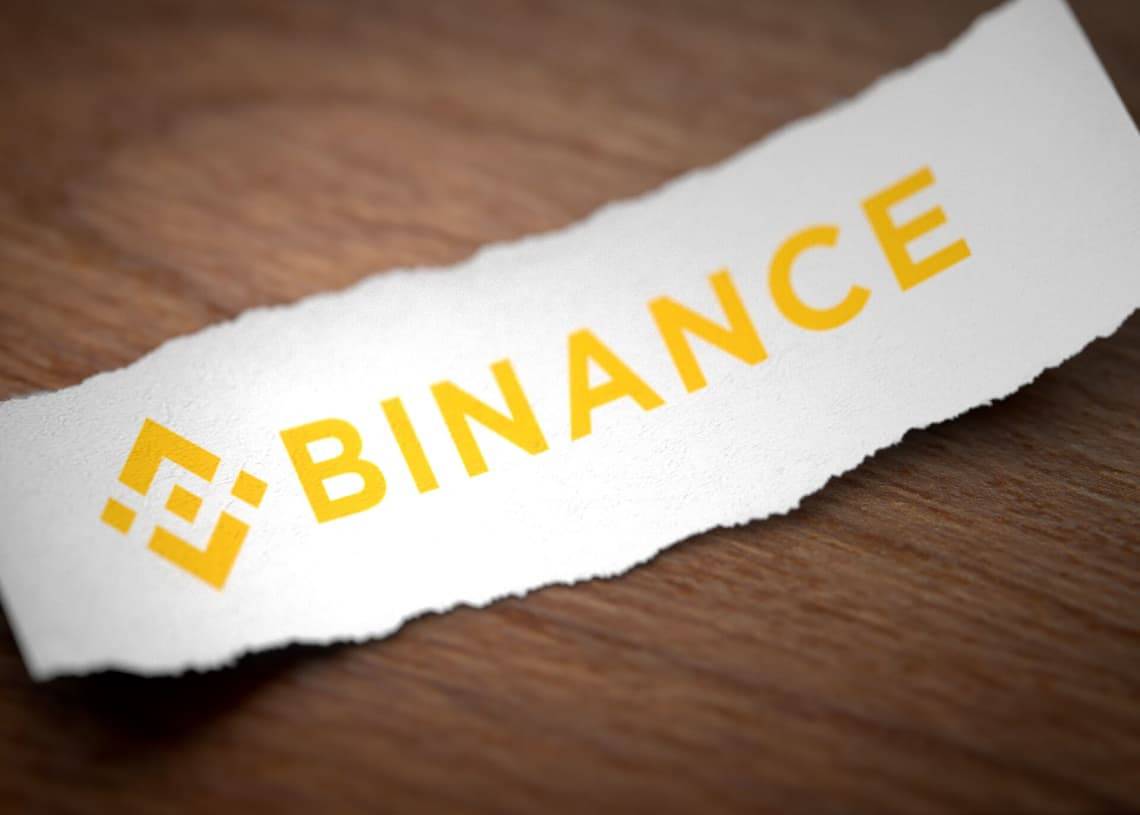Major regulatory bodies in Europe and Asia are trying to determine whether the move by Binance, the world’s largest crypto exchange by volume, to launch stock tokens such as Tesla and Coinbase violated securities laws, specifically in the way they have been marketed.
Binance’s new initiative to trade stock tokens that represent a share of a publicly traded company has been met with enthusiasm by the crypto community, illustrated by trading volume for the Tesla TSLA/BUSD pair of nearly US$10 million on April 12, its first day of trade. Binance has since also released stock tokens for MicroStrategy, Apple and Microsoft.
According to Binance, the service allows users to buy stock tokens that represent public companies’ shares and can be traded at a hundredth of a fraction of the share. All trades are settled in Binance’s dollar-linked stablecoin, Binance USD (BUSD).
When an exchange user opens a trade, Switzerland-based Digital Assets AG (DAAG), purchases the corresponding amount of the company’s shares on behalf of a German firm called CM-Equity AG and a token is then created on DAAG’s private blockchain.
See related article: Binance Charity Fund donates to India’s COVID-19 fight
The purchased underlying shares are then put into a third-party security account associated with CM-Equity AG, and DAAG sends the token through CM-Equity to Binance and then on to the user.
Regulators investigating
However, regulatory bodies, such as the U.K.’s Financial Conduct Authority (FCA), German watchdog BaFin and Hong Kong’s Securities and Futures Commission (SFC) are all now investigating whether the stock tokens comply with the rules governing transparency and corporate disclosures in their respective jurisdictions.
On April 28, BaFin published a warning to investors that Binance may have violated European securities rules with the launch of its stock tokens.
According to the document published by BaFin, due to the nature of Binance’s product and the way it has been marketed, the cryptocurrency exchange has violated the European Prospectus Regulation by not supplying a prospectus to investors for the stock tokens. The securities violation means Binance could face a fine of up to US$6 million.
See related article: Ripple demands SEC to stop obtaining info on XRP dealings abroad
“The tokens are fully backed by a depository portfolio of underlying securities that represents the outstanding tokens. Stock tokens listed on Binance.com are a CM-Equity product that is compliant with MiFID-II and BaFin regulations,” a Binance spokesperson told Forkast.News. “Currently users only buy/sell the tokens from and to CM-Equity, which does not require a prospectus.”
Users in the U.S., China and Turkey are restricted from trading the stock tokens. The U.S. Securities and Exchange Commission (SEC) commissioner Hester Peirce has said that Binance would not be able to launch such a product in the United States as it would “be an issue of concern for the SEC as it relates to our securities markets.”
Democratizing value transfer, but not legal rights
Binance’s chief executive Changpeng Zhao said in the official launch announcement on April 12, that the tokens “demonstrate how we can democratise value transfer more seamlessly, reduce friction and costs to accessibility, without compromising on compliance or security. Through connecting traditional and crypto markets, we are building another technological bridge for a more inclusive financial future.”
While the stock tokens allow greater access to holders who may not typically be able to gain economic exposure to these underlying shares — the tokens do not confer legal rights associated with share ownership such as voting rights.
See related article: Binance and Huobi stablecoins surge as Asia seeks fiat alternatives
“Essentially, these stock tokens enable people to invest in fractions of shares, and this could create a new and potentially huge derivative market,” said Professor Seen-Meng Chew at the Department of Finance at Chinese University Hong Kong, in an interview with Forkast.News.
According to Chew, however, the inherent risks of these derivative products are not well understood at this point and their prices are “likely to be volatile.” So, investors need to invest with great caution.
For stock token holders, dividends but not voting rights
“As token holders are also entitled to dividends, how these products could affect the governance and trading of the underlying shares remain uncertain,” Chew said, while noting that token holders do not have voting rights.
While the Binance representatives offered no comment on where the voting rights reside, traditionally shares give the stockholder the right to vote on matters of corporate policymaking.
If Binance users are paying for public shares that are being held by a third-party entity and by agreeing to the trade they forfeit their voting rights, in theory it could mean the third party could be accumulating decision-making power in those public companies’ corporate governance at the expense of the exchange’s stock token holder.
See related article: How to balance crypto investor protection and innovation in Hong Kong
In the traditional markets, such stock tokens could also constitute complex derivatives that are typically not available to retail investors. Red flags have already been raised by Hong Kong law firms regarding the Binance stock tokens and its marketing campaign to “trade equity with crypto coins” targeting retail investors. Marketing this to the broad public could be construed as misleading and hence caught the eyes of regulators.
Henry Chong, CEO of licensed digital securities exchange Fusang, told Forkast.News he believes Binance will “likely get into trouble for fraudulently marketing” the stock token.
“Their marketing is very strongly claiming these are fractional shares,” Chong said. “If you promote the product as a stock token, but then in fine print declare they are not in fact stock tokens, that just seems kind of dodgy. The honest truth is, especially retail investors, they don’t look that closely. They just kind of go with what you claim.”
According to Chong, only two options really exist for the stock tokens. The first is that, ”these really are shares, stocks, as they call them, in which case it seems downright illegal for them to do what they’re doing,” he said. “Binance isn’t registered as a stock exchange to list and trade stocks in that way.”
The second is that Binance is now acting as an agency broker and just passing the trades through to someone else. “Again, it doesn’t seem like Binance is licensed to do any of that,” Chong said.
See related article: R3 Corda helping Thailand’s case for international trade dark horse
When asked directly on these points by Forkast.News, Binance representatives maintained that the stock tokens are a “CM-Equity AG product” that is compliant with MiFID-II and BaFIN regulations as CM-Equity has the license to sell securities and financial instruments, and as such does not require a prospectus.
Where in the world is Binance headquartered now?
Since leaving China in 2017, Binance has learned to survive and thrive in the nascent cryptocurrency markets and has become the largest exchange in the world by volume.
During the past three years, Binance appears to have been involved in a game of regulatory arbitrage — finding ways to skirt around regulators still trying to put in place efficient mechanisms for coordination across jurisdictions in the same way they have done for traditional markets, such as stocks and foreign exchange.
When Binance came under the Hong Kong SFC’s spotlight, a spokeswoman for Binance said the exchange did not operate in the city, and offered no comment on any licensing. Notably, Binance’s Zhao has consistently deflected or chosen not to answer any direct questions regarding the firm’s actual headquarters.
See related article: Turkey’s Thodex exchange fraud case yields six new suspects
“A lot of companies, Binance included, have always been very weary of answering questions about their headquarters,” said Chong, the Fusang CEO. “Even in a digital world where you serve a global customer base, you always need to be serving that customer base from somewhere. I’m not just talking about digital assets, as companies increasingly become cross-border, like Google for example. The question is, who regulates them?”
Investors should undoubtedly be asking more questions. According to a two-page “Binance Stock Tokens Trading Service Agreement” the exchange “reserves the right to suspend or terminate Binance stock tokens trading service without notice. If necessary, Binance.com has the right to suspend and terminate Binance stock tokens trading service at any time.”
The trading agreement means that Binance currently is within their rights to terminate the service at any time, although this is unlikely given the reputational damage it would cause. But it could leave traders with little recourse, zero exposure to their share of a company stock and confused about which regulator they could turn to for help.





